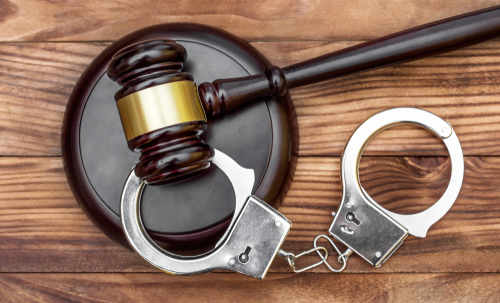Tackling the Challenges of Criminal Defense: An In-Depth Look at Legal Strategies

Key Takeaways:
- Understanding criminal defense from a legal perspective
- Exploring key strategies used by defense attorneys
- Highlighting the significance of an effective defense team
The criminal justice system presents challenges, demands, and nuances that require a high degree of professional knowledge and strategic prowess. When individuals are thrust into this system facing charges of a criminal nature, the value of an experienced legal advocate cannot be overstated. Defense attorneys fill this role, providing much-needed guidance, representation, and counsel. The essence of the role, the strategies they employ, and the relationship with their clients form the scaffold of an effective defense.
The Role of a Criminal Defense Attorney
In the legal battleground, criminal defense lawyers epitomize such expertise, offering unwavering support to those needing representation in a complex legal arena. serve as the frontline guardians of justice for the accused. For instance, Berry Law personal injury lawyers team deftly navigate through statutes, case law, and procedural nuances to craft a defense arc that stands firm in the winds of prosecution assertions. Combining analytical prowess with tactical acumen, these attorneys must dissect the prosecution’s case piece by piece, challenging its integral components and proposing alternative narratives that align more favorably with their client’s position. From the onset of an accusation, through the rigors of trial, and into the currents of post-conviction proceedings, the attorney stands as an unwavering advocacy pillar.
Common Defenses in Criminal Law
Criminal law defenses are as varied as the cases that traverse courthouses worldwide. In some instances, the defense may hinge on presenting an alibi and producing evidence and testimonies that place the defendant elsewhere during the commission of the alleged offense. In others, the defense may assert claims of justification such as self-defense or defense of others, especially in cases involving potential harm. Sometimes, the mental state of the accused at the time of the offense becomes the fulcrum, navigating complex legal interpretations of intention and capacity—as seen in insanity defenses. Attorneys must also grapple with nuances of consent, entrapment, and the statutory intricacies that could exonerate their clients.
Strategic Use of Evidence
Adept criminal defense hinges on the strategic deployment of evidence. Legal professionals must command a nuanced understanding of evidentiary rules and leverage this knowledge to craft compelling narratives. The process is thorough, encompassing the meticulous collection, examination, and challenge of physical artifacts, digital footprints, and forensic conclusions. Deploying this evidence effectively demands a mastery of legal doctrine fused with the rhetorical skills to convey complex ideas to a lay jury clearly and convincingly.
The Dynamics of the Attorney-Client Relationship
At the heart of a solid defense is the relationship between attorney and client—a dynamic partnership underpinned by trust, honesty, and strategic collaboration. This accord is critical as it frames the foundation upon which a defense is built. Clients must feel confident to divulge sensitive information, assured by attorney-client privilege. Simultaneously, attorneys must provide candid advice, even when it may not align with the client’s initial expectations. Together, they must navigate the treacherous landscape of criminal proceedings, wherein every decision can possess momentous implications.
Preparing for Trial: Critical Steps for Defense Lawyers
The runway to the courtroom is paved with countless hours of preparation where defense lawyers chart the course of the impending trial. This pre-trial phase is a crucial juncture where the defense is sculpted and refined. Evidence is re-examined, potential witnesses are evaluated, and legal motions that may limit the prosecution’s presentation or even dismiss the case are meticulously drafted. Simulations—including mock trials—are integral to this stage, as they provide a rehearsal space to fine-tune courtroom communication and strategy.
Mastering the Legal Theater
The arena of a courtroom is a crucible where the mettle of a defense’s case is tested. Here, the defense counsel must be astute actors, aware of the nuances of jury perception, adept at reading the courtroom’s pulse, and capable of pivoting in the face of unforeseen developments. The dramatic interplay of argument and counterargument, witness testimony, and vital cross-examinations can sometimes resemble a complex dance, with each step potentially swaying the jury’s sentiment.
Also read: C.W. Park USC Lawsuit Understanding The Implications and Details
Ethical Considerations in Criminal Defense
Criminal defense extends beyond mere argumentation and tactics; it is also a domain with ethical considerations. Attorneys must adhere to a code that demands honesty, respect for the law, and the equitable treatment of all parties involved. They must balance their dogged pursuit of a favorable outcome with the boundaries prescribed by legal statutes, navigating the tightrope of advocacy with measured caution and integrity. Preserving the fiduciary relationship with their client while maintaining professional ethics is a delicate yet paramount task.
Jury Selection and Its Impact on Trial Outcomes
The jury assembly is a chess game involving psychology, demographics, and the law. During the voir dire process, legal teams carefully select, discerning potential prejudices and predispositions among jurors. Strategic dismissals and selections compose a jury that is receptive to the defense’s arguments or, at the very least, impartial. This phase can significantly mold the trajectory of a trial, highlighting its potency within the justice process.
Technological Advancements in Criminal Defense
The march of progress continues to echo within the chambers of criminal defense, where technology has anchored itself firmly as a trade tool. Innovative software assists in dissecting crucial surveillance footage. At the same time, emerging platforms enable the collation of vast data troves with unprecedented ease. These advancements provide an edge in formulating a defense narrative, equipping lawyers with capabilities once relegated to science fiction. Yet, great power comes with great responsibility, as such technologies demand mastery and ethical deployment to uphold justice’s honor.
Digital transformation begets new challenges for defense, including data privacy, electronic surveillance, and the admissibility of digital evidence. Staying abreast of these developments ensures that defense teams remain effective counterweights in the scales of justice.
Looking Forward: The Future of Criminal Defense
Peering into the horizon, one envisions a reshaped landscape of criminal defense marked by legal evolution and technological ascent. Legal professionals must display agility and foresight when anticipating changes, whether due to legislative shifts or altered public perceptions. They must stay vigilant, be ready to employ novel approaches and embrace advancements that promise to refine the art of defense. In so doing, they will continue to safeguard our fundamental rights and ensure the legal system’s robustness against future challenges and transformations. Read more



